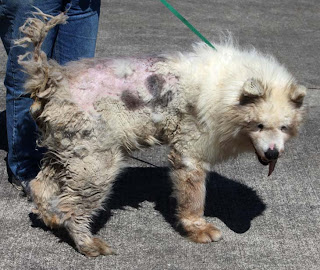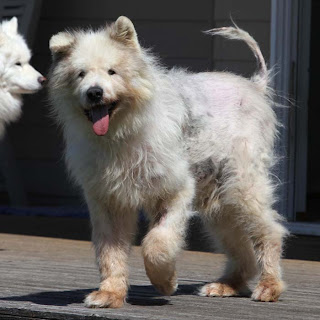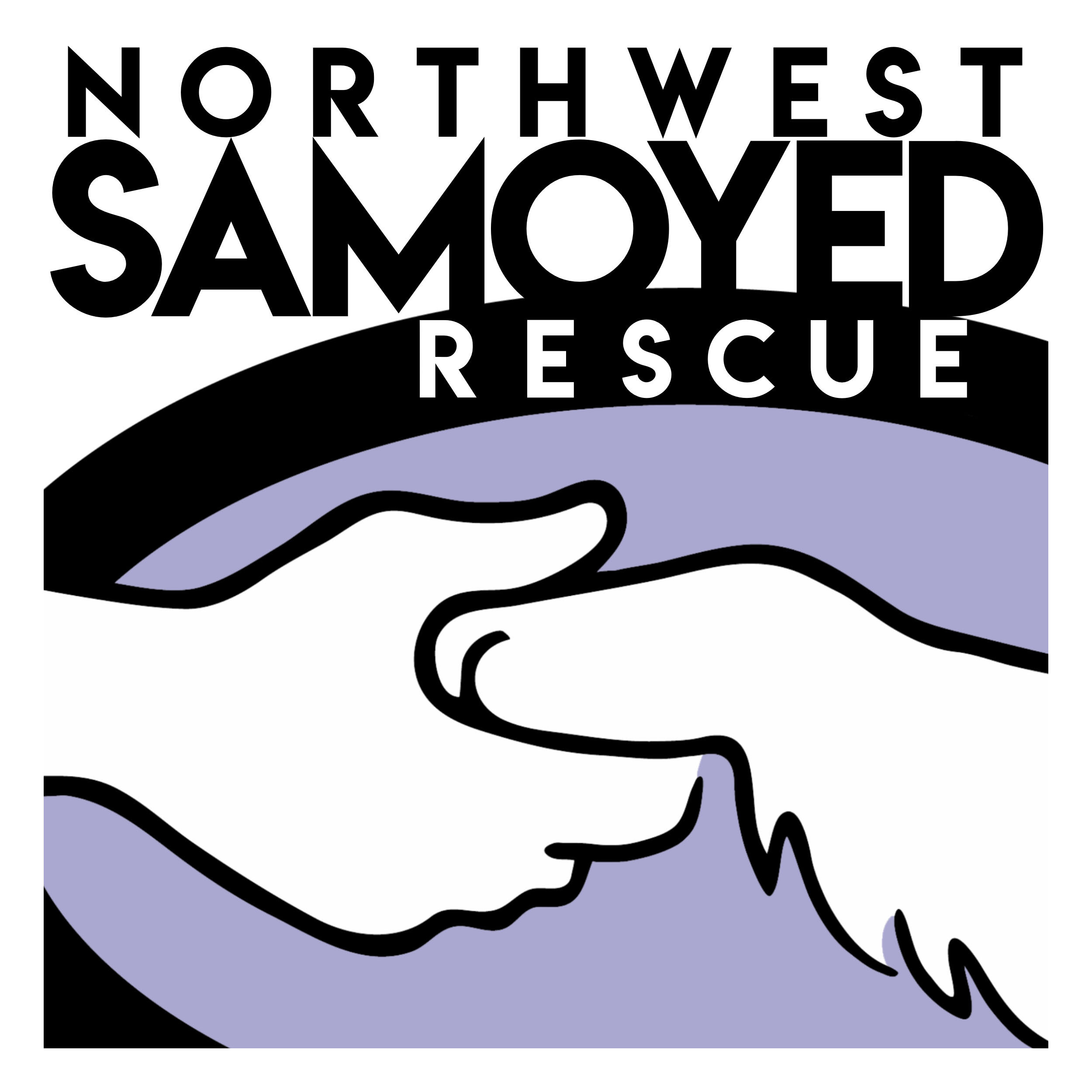September 2010
In a typical rescue month we talk to people about many things. Sometimes we’ll hear of a dog who needs help, only to find out the owner wants us to give them leads so they can sell their dog. Other times we hear about a training issue a past adopter wants to talk about, or a medical issue that has cropped up. Our friend Holley monitors Craigslist posts nationwide, and another friend named Heather in Illinois checks Petfinder several times a day so we don’t have to do it. Those usually bring a number of messages each month we need to address. Sometimes another rescue group will let us know about a dog they have and need help placing. Of course we get applications constantly, and those need to be answered and home visits arranged. These are some of the administrative tasks, the part of our work that doesn’t smile back at us or shed hair or ask for a scratch. All of these came our way this past month in the usual numbers.

What’s unique this month centers around our newest foster dog, Kenai, who has the most significant health issue we have yet encountered. He came from the Tacoma Humane Society after being picked up by Lakewood Animal Control. His owners moved and abandoned him, but before that they ignored significant symptoms that should have been addressed. They may also have abused him but that can’t be proven. He has a tongue that is extra long, but whether it’s from trauma or something neurological is unknown. We know he was a strictly outdoor dog. Kenai has hair on his head and legs, but not elsewhere on his body except for tufts here and there; what hair he has was all matted. We heard about him because of friends at Old Dog Haven, a group that we’ve worked with before. Our first call to the shelter was met by surprise because they thought he was very old and should be euthanized. Happily for Kenai we talked them into letting us see him, and we found a dog who is sick but definitely not old. He is mostly Samoyed with what may be a little Malamute mixed in. The Lakewood Animal Control Officer has asked for updates because he sent Kenai’s case to the Pierce County prosecutor.
Our vet suspected Cushing’s Disease right away because of his general appearance, so we tested and found it was likely. Because our vet has limited experience with the drugs needed to treat it, he referred us to a specialist in Tacoma. Tests there confirmed the diagnosis, and Kenai has just begun receiving some seriously strong drug therapy. Lysodren (Mitotane) is also used for chemotherapy. After a week he will be re-tested and we expect the treatment will taper off to a weekly or monthly dose. The usual treatment is drug therapy for life, but with that comes the strong probability of a normal life. Because he has such a mellow attitude toward life, and genuinely seems to love people, we think Kenai is worth the cost. Lysodren is about $180/week, and to date the tests and meds have set us back over a thousand dollars. Kenai is also on three different Chinese herbs for organ support and an antibiotic for his skin.
Cushing’s Disease (Hyperadrenocorticism) is the overproduction of the hormone Cortisol by the adrenal glands. It is usually caused by a tumor of the pituitary gland, which produces a hormone that directs the adrenal glands to produce cortisol, or by a microscopic tumor of the adrenal gland itself. Symptoms are usually hair loss, a pot bellied appearance, and increased drinking and urination. The testing is centered around how well the dog’s body handles an injection of dexamethasone, which in normal dogs will decrease in level after eight hours; the level in a Cushing’s dog will remain constant. The testing is not an exact science so other tests and observation are a big part in diagnosis. The usual treatment is with Lysodren, a chemotherapy drug that results in shrinking of the tumor, which lets the dog return to a normal life.

Kathy spent a lot of time grooming the mats out of Kenai’s hair and getting him used to being handled. He tolerated it well and most of the nasty stuff is long gone. Now we’re working on getting him used to having his feet handled. Most of the time Kenai can be found snoozing next to one of us, and he sure enjoys the attention he gets here. We anticipate he will begin growing noticeable hair within a month, and when that happens and his medicine is regulated we will begin looking for a home for him.
Northwest Samoyed Rescue sends a special thank you this month to Rod and Button Cook of Atlanta, Georgia, whose family foundation sent a donation that covered a substantial portion of Kenai’s medical bills. We are blessed with wonderful friends.
More pictures of Kenai are at http://nwsams.smugmug.com/rescue/Kenai
